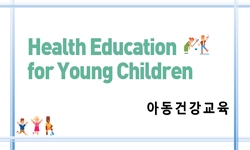본 연구는 간접흡연에 관한 광고 메시지에 흡연자와 비흡연자가 어떻게 다르게 반응하는지를 살펴 보았다. 불행하게도 대부분의 금연광고가 비흡연자에게만 초점이 맞쳐져 있어서 금연광...
http://chineseinput.net/에서 pinyin(병음)방식으로 중국어를 변환할 수 있습니다.
변환된 중국어를 복사하여 사용하시면 됩니다.
- 中文 을 입력하시려면 zhongwen을 입력하시고 space를누르시면됩니다.
- 北京 을 입력하시려면 beijing을 입력하시고 space를 누르시면 됩니다.
건강 캠페인에서 도덕적 감정의 역할에 관한 연구
한글로보기https://www.riss.kr/link?id=G3737814
- 저자
-
발행기관
-
-
발행연도
2013년
-
작성언어
Korean
-
주제어
흡연 ; Health Communication ; Persuasion: Moral Emotion ; Fear ; Fear Appeal ; Victim Blaming ; Moral Outrage ; Guilt ; Public Health ; Healt Risk ; Advertising ; 개인적 분노 ; 도덕적 분노 ; 방어적 동기 ; 건강
-
자료형태
한국연구재단(NRF)
-
0
상세조회 -
0
다운로드
부가정보
국문 초록 (Abstract)
본 연구는 간접흡연에 관한 광고 메시지에 흡연자와 비흡연자가 어떻게 다르게 반응하는지를 살펴 보았다. 불행하게도 대부분의 금연광고가 비흡연자에게만 초점이 맞쳐져 있어서 금연광고가 흡연자들에게 미치는 효과에 대해서는 잘 알려져 있지 않다. 따라서 본 연구는 메시지가 흡연자를 비난하고 있다고 판단할 경우 광고에 대한 분노가 생기고 이것이 흡연자를 권리를 찾고자 하는 심리로 이어질 수 있다는 것을 보여준다. 한편, 메시지가 간접흡연의 심각성을 말하고 있다고 판단할 경우 이것이 흡연자를 권리를 반대하는 심리로 이어질 수 있다는 것을 보여 주었다. 이 결과는 간접흡연으로 인한 비흡연자의 피해를 강조하는 간접흡연광고가 비흡연자에게는 효과적일 수 있지만 흡연자에게는 효과적이지 않을 수 있다는 것을 보여준다. 즉 그러한 간접흡연광고에 대해 흡연자들은 흡연자를 비난하고 있다는 것을 느끼고 따라서 그러한 광고를 회피하거나 무시하게 될 있다는 것을 보여준다. 공중보건에 대해 연구하는 학자들은 이러한 개인의 책임을 강조하는 논점들이 건강에 가장 피해를 많이 받고 있는 사람들, 즉 흡연자, 비만이 있는 사람들이 그 메시지에 대해 비난이나 모욕감을 느끼게 될 수 있다는 것을 강조하고 있으며 이러한 것이 개인의 사생활이나 자유에 대한 침해를 가져 올 수 있다는 것을 경고하고 있다.
다국어 초록 (Multilingual Abstract)
The results showed that antismoking PSAs including secondhand smoke may be effective for nonsmokers but not for smokers. If smokers assess that a PSA blames them, they may arouse greater anger toward the PSA. Such anger may lead to avoid or ignore the message. Scholars in public health argue that the emphasis on personal responsibility was often associated with condemnation of those who are involved in health risks as well as with calls for invasions of privacy and deprivations of liberty
This study examines how smokers and nonsmokers respond differently to the message on secondhand smoke. Unfortunately, because most research on anti-smoking campaigns has focused on nonsmokers, little is known about the effectiveness of anti-smoking ad...
This study examines how smokers and nonsmokers respond differently to the message on secondhand smoke. Unfortunately, because most research on anti-smoking campaigns has focused on nonsmokers, little is known about the effectiveness of anti-smoking advertising on smokers, who are at the greatest health risk and for whom the antismoking advertising has the greatest potential to backfire (Agostinelli & Grube, 2003). Specifically, this study examined how perceived blame induces greater personal anger, which promoting support for smokers’ rights. On the other hand, perceived health consequence evokes greater moral outrage, which in turn opposing support for smokers’ right.
The results showed that antismoking PSAs including secondhand smoke may be effective for nonsmokers but not for smokers. If smokers assess that a PSA blames them, they may arouse greater anger toward the PSA. Such anger may lead to avoid or ignore the message. Scholars in public health argue that the emphasis on personal responsibility was often associated with condemnation of those who are involved in health risks as well as with calls for invasions of privacy and deprivations of liberty











